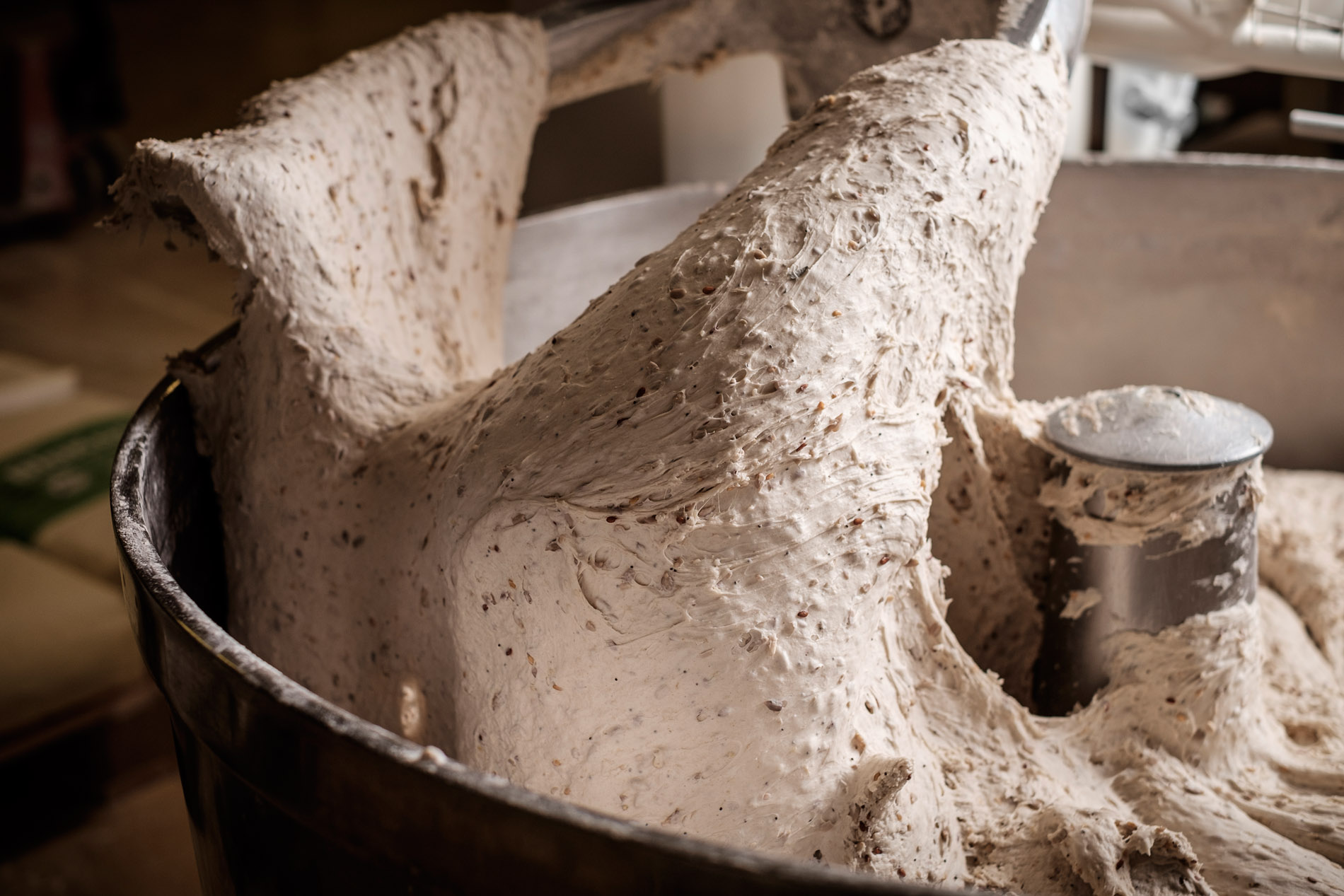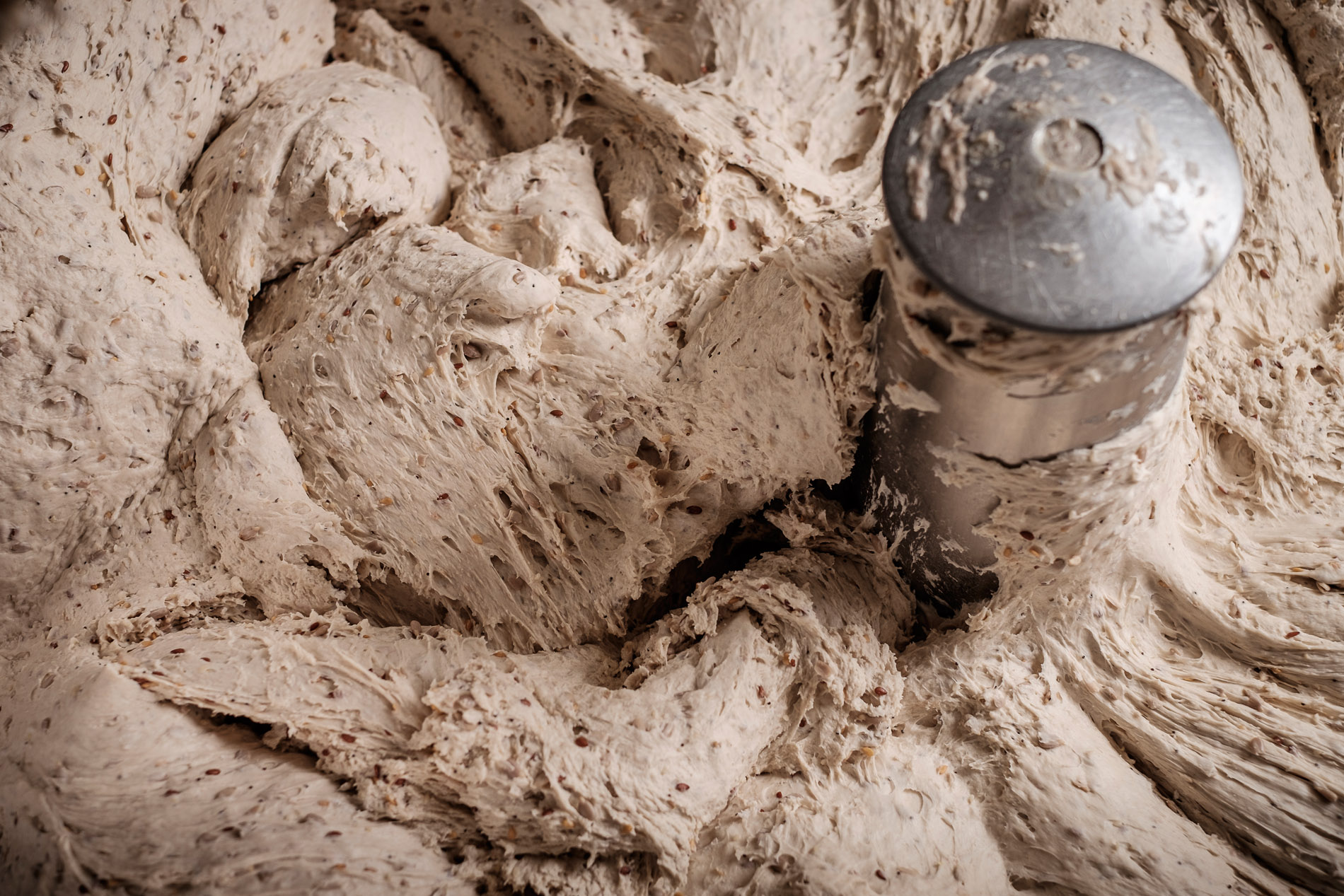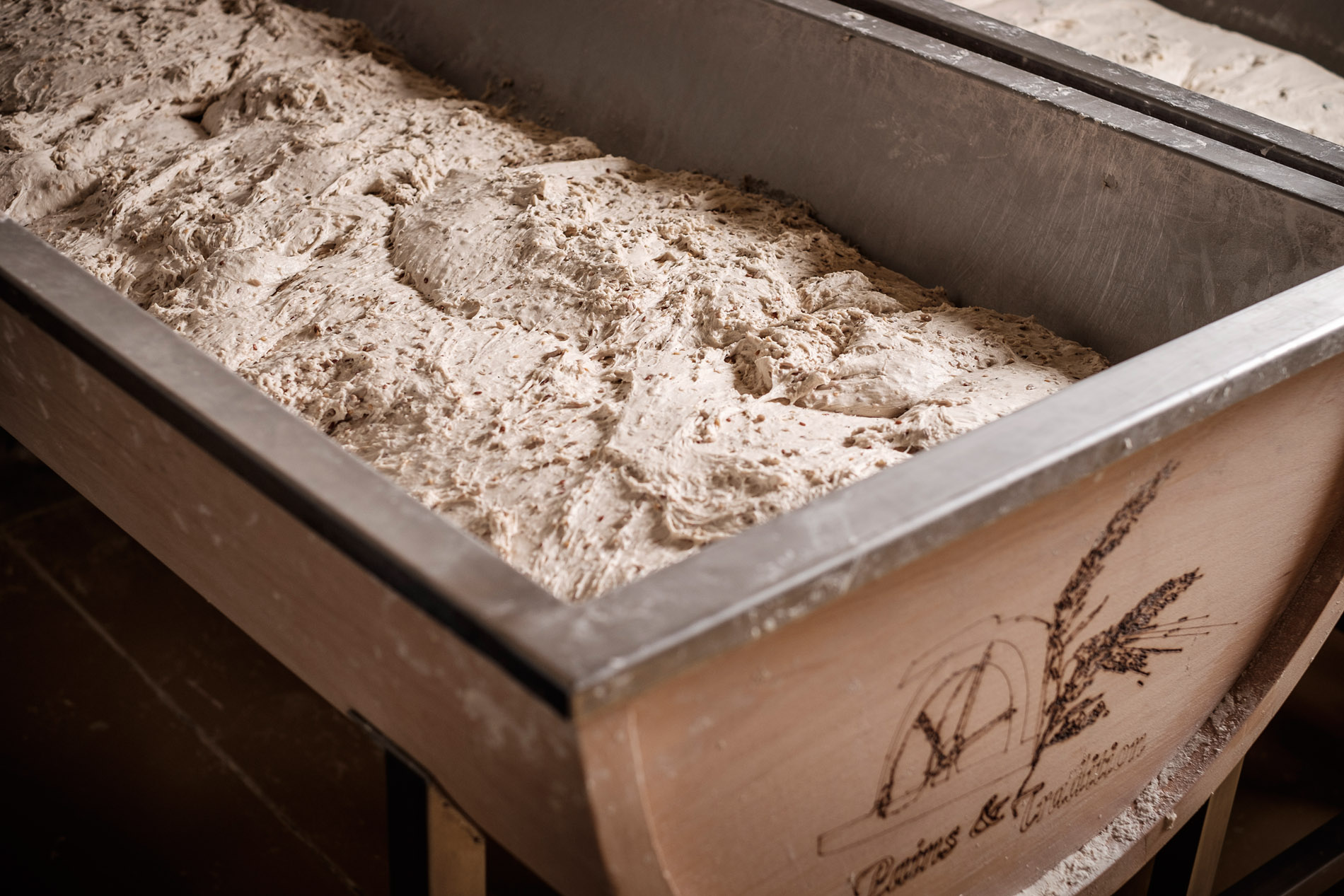
Kneading :
There was a time when bakers kneaded by hand. Nowadays, modernity and a deeper understanding of the techniques for making bread have led to mechanised kneading. A tool cannot replace the state of mind nor the know-how of a baker, but it does maintain a consistent level of quality.
At Pains et Tradition, we value the quality that flows naturally from tradition. Kneading is an important stage, because it gives the dough the personality that is fully expressed through the baking process and, of course, on the palate. We have chosen a slow knead, which gives the crumb a creamy colour and a good honeycomb structure.
That is why every day, in our workshops, we ensure strict compliance with the rules that form this stage of the bread manufacture, a step that is essential for renewed pleasure on a daily basis.
Hydration :
The secret to the taste of the bread is time and water. The water and flour should be a perfectly balanced mixture to make a dough hydrated at 67-70%, which creates bread that can be described as “alive”.
The result, of course, is awesome bread, particularly for digestion because it contains slow sugars that are a perfectly healthy part of a nutritional dietary plan, notably by favouring slow digestion. In addition, respecting the rules produces bread that stays fresh for longer and remains good to eat for three days. In terms of taste, it develops flavours of honey, caramel, hay and red berries.


Fermentation :
In the spirit of tradition that drives us, it is no coincidence that we have resolutely opted for slow, natural fermentation at temperatures of 23-24°C for a duration of 3 to 8 hours in a proofing basket. This type of fermentation avoids the creation of fast sugars that, if directly digested by the body, are a cause of obesity.
So slow fermentation favours slow sugars. Karin Buchart from the University of Salzburg calls these good sugars “resistant starch”, as they have similar characteristics to fibre, slowing down digestion.
Furthermore we find that the fermentation of wine and cheese follows the same rules in terms of temperature. Two areas where tradition plays an important role.
To reap the full benefits of our fermentation process, we maintain a traditional approach. This is why we fold the dough by hand before shaping. An action that gives the dough its strength. The rest period (or maturation) allows the flavours to develop and give character to taste. At Pains et Tradition, we continue to use the step carried out by hand by our craft bakers, as it forms an integral part of our commitment in terms of quality and tradition.







